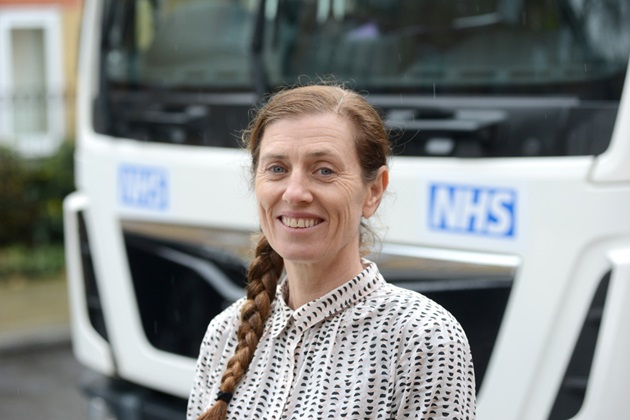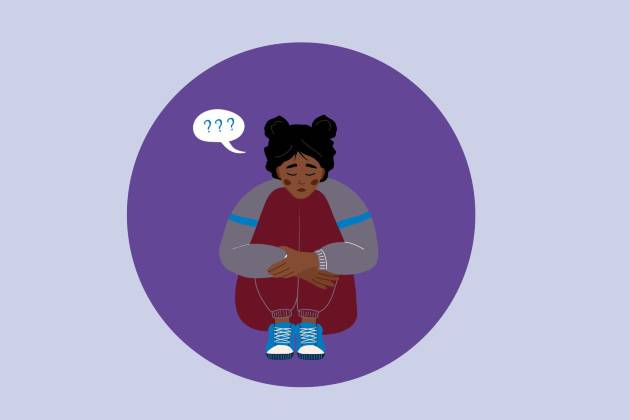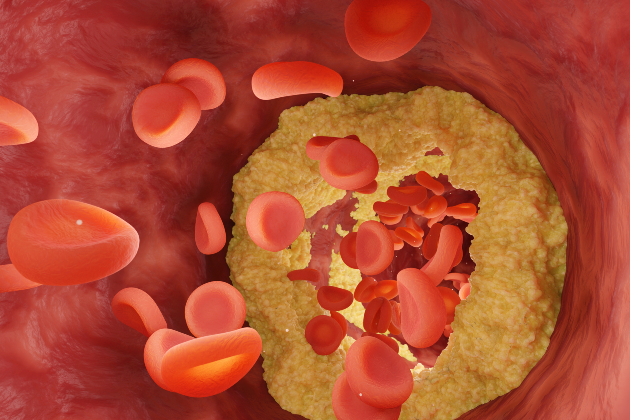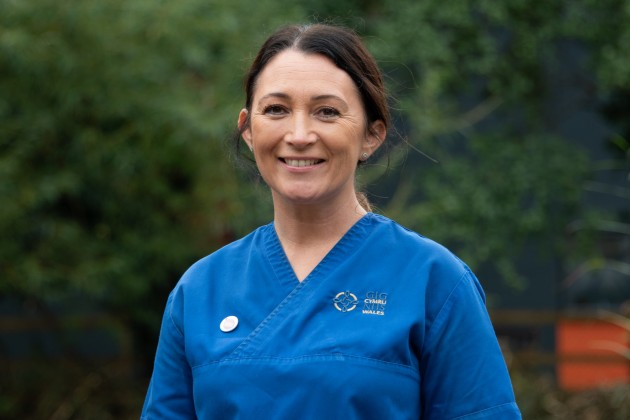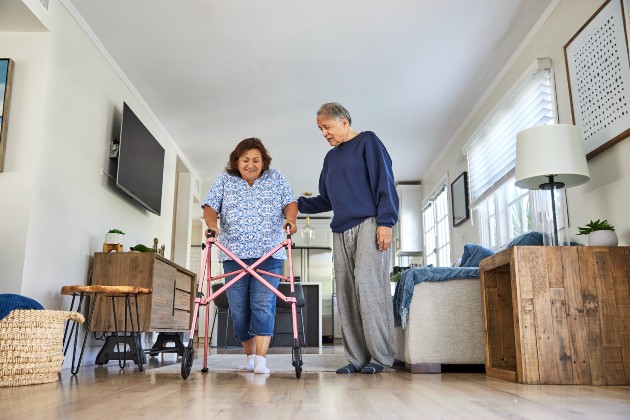Yasmin works on a unique mobile health van seeking out and treating homeless people with TB
“Tuberculosis isn’t sexy. It isn’t high on the political agenda. It’s perceived to be a deadly infection from the past, but it continues to be a serious public health problem and is especially concentrated in some of our most vulnerable communities.”
Yasmin Appleby is speaking from experience. As a clinical nurse specialist on the UK’s only mobile health van that actively screens people for tuberculosis (TB), she’s spent the past eleven years finding and treating those who would have otherwise gone undetected.
The people we see are facing extreme exclusion and have problems using the NHS
“The people we see are facing extreme exclusion and have problems using the NHS,” she says. “They’re rough sleepers, homeless hostel residents, sofa surfers and undocumented migrants. They’ve often had a major tragedy in their lives that’s led them to develop drug and alcohol problems and they’ve fallen out of the system.”
It’s the job of the Find&Treat team to go to places where homeless and vulnerable people gather, such as day centres, soup kitchens and churches, educate them about TB and invite them onto the van for a chest X-ray. From the results of this, alongside history taking and a sputum sample, the team can tell instantly whether a person has TB and can begin a programme of tailored treatment and support.
“TB is curable and can be effectively controlled so long as cases are found early and patients can complete treatment,” says Yasmin.
With homeless people, however, both crucial factors prove challenging. The symptoms of TB - weight loss, sweating at night, lethargy and a persistent cough - are masked by other health issues experienced by people who live on the street. Adherence to treatment, which consists of a minimum of six months daily medication, is particularly tricky for those with no permanent home.
This is where Yasmin comes in. She actively case manages the people found to have TB and adapts her support to make sure they take their antibiotics.
“I’m there to hold their hand through what can be a pretty scary and daunting time,” she says. “Some of our people have nobody in their lives they can rely on. I can be that person.
“I don’t treat TB, I treat people. So, I’ll go out to where they are, I’ll accompany them to their appointments, and I’ll try to make their treatment journey as smooth as possible.”
“It’s no good diagnosing someone with TB, giving them a big bag of pills and putting them back where I found them. I need to help change things, so I look at people holistically, see what put them on the street in the first place and try to fix some of those problems.”
Some people have nobody in their lives they can rely on. I can be that person
For some that can mean negotiating access to a hostel where they can stay for the duration of their treatment. For others, it results in them being given a smartphone with a video supported care app so they can record themselves taking treatment, send it back to a centralised system and seek virtual advice on any health concerns they have.
That strategy was considered hugely risky at the start, but since its introduction two years ago, very few people have abused having the phones, instead enjoying the contact such technology gives them and thriving on the responsibility of reporting their adherence to medication.
It’s helped the success of the service, which has supported 84% of people found with TB to complete treatment within 12 months. That’s higher than the proportion of cases who complete TB treatment nationally.
But it’s not just TB that the Find&Treat team is detecting. “When people come onto the van for a health check and X-ray, we can open a whole can of worms,” says Yasmin. During a standard three-hour session, where up to 50 people are seen, a whole range of health issues can be unearthed. Lung cancer, breast cancer and chronic obstructive pulmonary disease (COPD) to name a few.
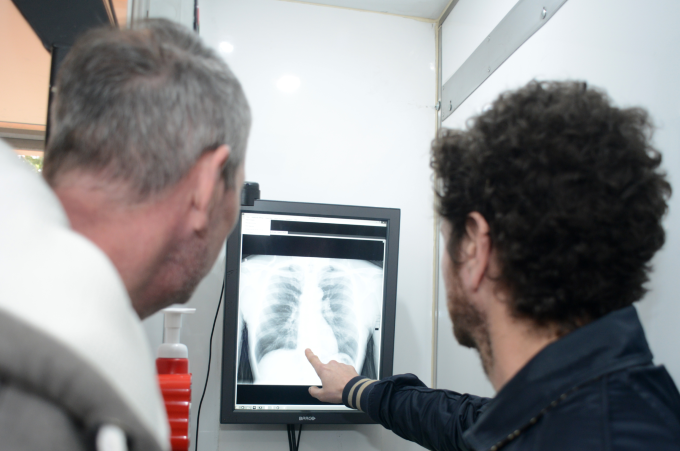
The Find&Treat team provides immunisations against influenza, pneumococcal pneumonia and Hepatitis B and also tests for Hepatitis C, which it has a 90% success rate of curing following treatment. The team comprises two nurses, two radiographers, two outreach workers and a driver. It operates in every London borough but also tours the UK on a circuit. It is regularly called upon to support the control of TB outbreaks nationally.
Is nursing crucial to its success? Absolutely, insists Yasmin. “This is a nurse-led service that was initiated by a nurse. Just saying I’m a nurse breaks down barriers. People have trust in me in a way they don’t feel able to with other health services. I love my job – it’s utterly relentless – but it allows me to help people who have lived their whole lives on the edge. There is something very special to be in a position to do that.
What is TB and how is it spread?
TB is an infectious illness caused by airborne bacteria. It can cause serious health problems and death if not treated early. But it is curable.
It is spread from one person to another through the air. When a person with TB breathes, coughs or sneezes, droplets containing the bacteria are released into the air.
Most people who breathe in TB bacteria do not become unwell as their immune systems are strong enough to clear TB completely or hold it in a latent state.
Homeless people are at particular risk from TB. They’re more likely to be exposed to TB bacteria in hostel accommodation or settings where they gather to sleep or socialise.
The immune stresses associated with homelessness – such as rough sleeping, cold, poor nutrition and drink or drug abuse – then make it more likely that someone exposed to TB will go on to develop the illness.
Information from TB Alert website.
Quick facts
- The Find&Treat team screens almost 10,000 socially vulnerable people each year.
- The service has been running since 2005.
- 84% of people found to have TB successfully complete treatment with the help of the team.
- While numbers of people diagnosed with TB each year in the UK is declining, the proportion of homeless and vulnerable cases is increasing.
- 40% of all TB cases in England are in London.
- Rates of TB among the most deprived are six times higher than the least deprived.
Connecting on a personal level
Adrian “Bean” Noctor is an outreach worker on the team and has lived experience of homelessness
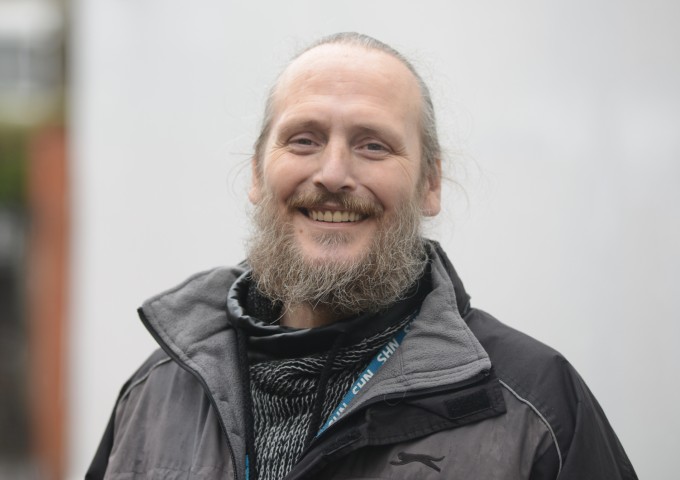
I’ve been working with the Find&Treat team for just over a year. It’s my job to speak with homeless people, explain what we do and encourage them to come to the van.
I’ve been homeless and a druggie. It gives you a sort of telepathy that medical people just haven’t got. The people we work with instantly know that I understand. It’s weird. They can just tell that I’ve been where they are.
Authority figures get ignored. There’s this mistrust that doesn’t exist with me. So, people will listen, and it gives us that chance to get them screened. If they then need to be referred to other services, I’ll go with them, be there to support them and make sure they turn up.
The people we work with instantly know that I understand
My job is crucial. It’s helping people turn their lives around and stop the spread of some pretty nasty diseases. When we find a case of TB on here, we can help get that person housed while on treatment. Sometimes that’s all it takes to get someone out of a situation they thought would continue. Giving them that daily attention, it makes them feel the huge corporate machine cares about them and it makes a difference.
These people who are homeless have often either been in care or been abused in some way. It’s trauma that makes people end up in this situation as an adult. So, they should be treated as vulnerable adults.
If a homeless person kicks off and rallies against the system, it’s not because they’re a horrible person, it’s because they’re traumatised and they’re displaying behaviour that’s a symptom of their circumstance.
Find out more
Visit the Find&Treat website to learn more about the service provided by University College London Hospitals NHS Foundation Trust.
Yasmin is one member whose work we're showcasing as part of our celebrations for International Year of the Nurse and Midwife.


